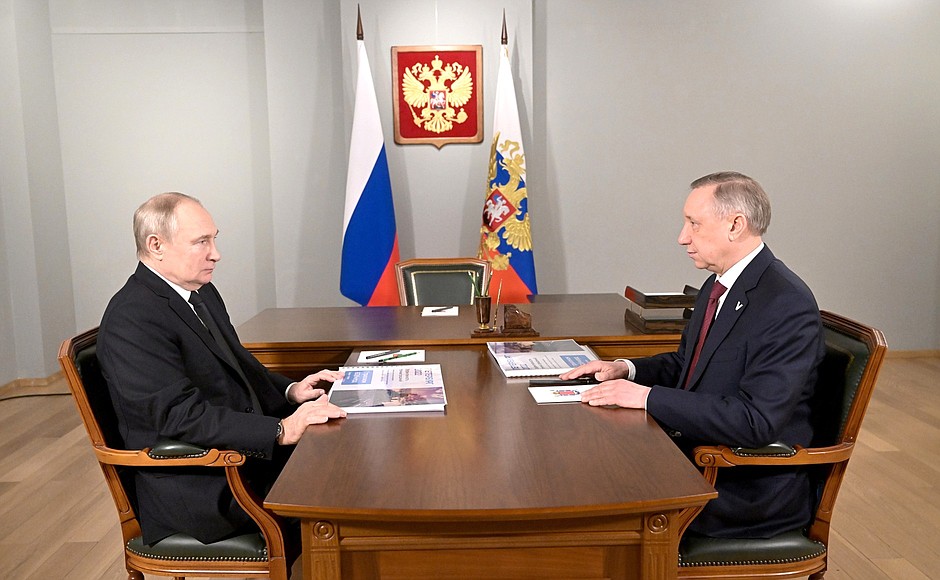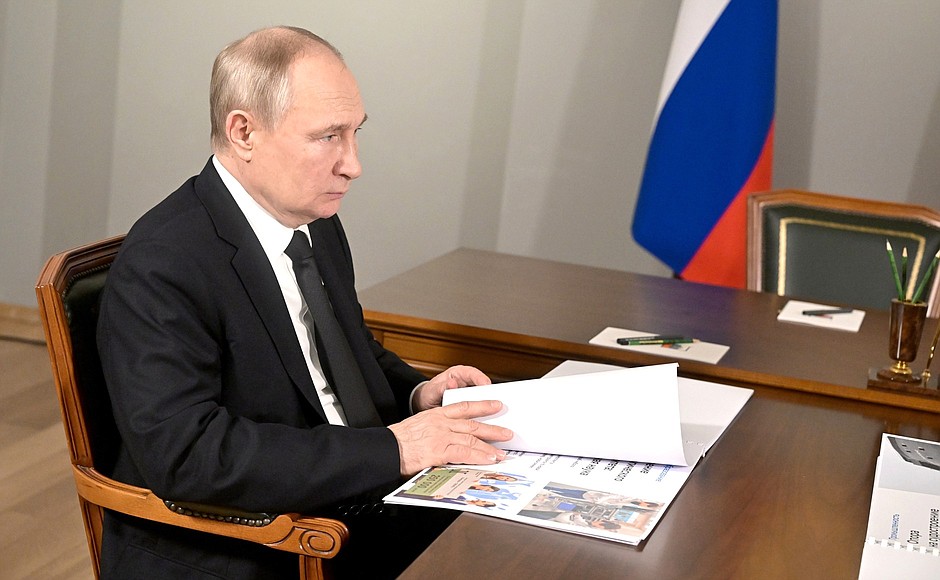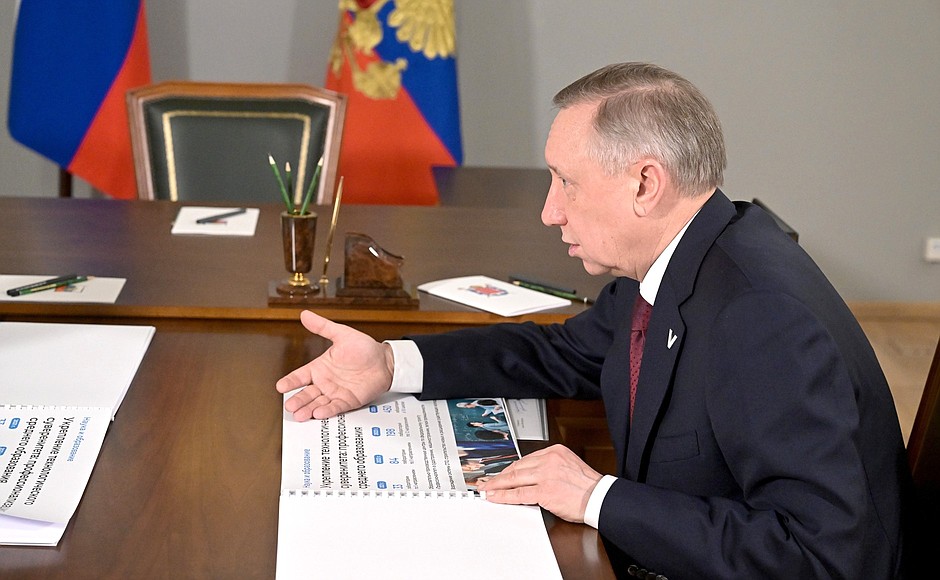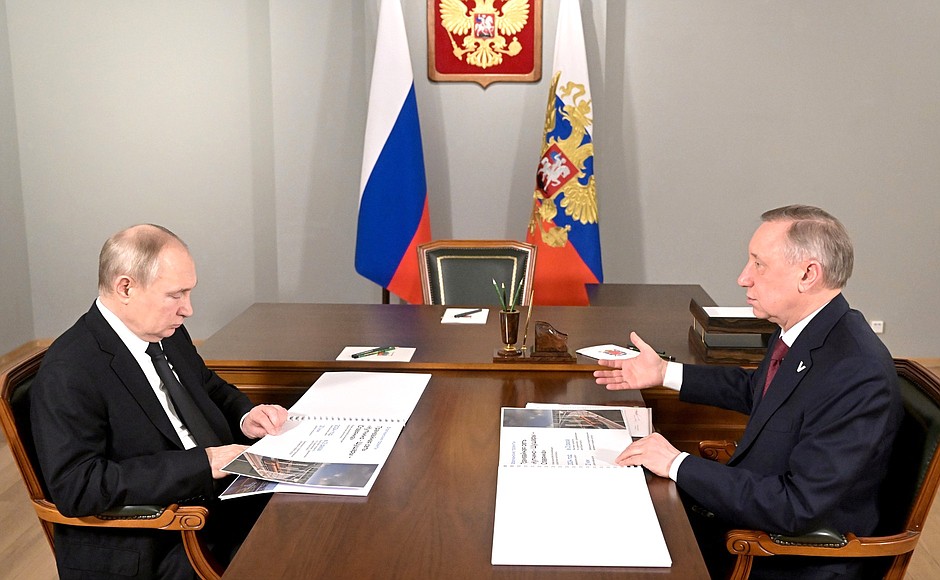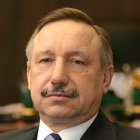The Governor told the President about the events devoted to the 80th anniversary of breaking Nazi Germany’s siege of Leningrad and the preparations for the anniversary of the full lifting of the siege next year. Mr Belov thanked the President for his care for the city.
Alexander Beglov also reported to the President on support for the special military operation. Three battalions – Neva, Kronstadt and Pavlovsk – and one tank battalion, Aurora, have been established together with the Western District. The Governor also told the President about benefits for the families of the mobilised personnel.
The Governor spoke about the changes that are improving life in the city including better operation of public transport, the purchase of new trams and trolleybuses and smart traffic lights, and the creation of a new city company for subway development and construction in cooperation with VTB Bank.
According to the Governor, the city is eliminating the imbalance between residential and social construction. In 2019, the city was short of social facilities – 100 schools, 60 medical institutions and 200 kindergartens. Today, this imbalance has been mitigated by almost two thirds and will be eliminated altogether in 2025. The city is upgrading primary healthcare. Last year, upgrades were completed at 77 outpatient clinics, and this year, at another 81 clinics, so this programme will almost be completed. The city is also updating its ambulance fleet.
The Governor also reviewed housing construction, the growth of industrial production and the increase in investment. Development of shipbuilding and the applied sciences were discussed as well. St Petersburg is a relatively small metropolitan area. Construction of large plants is not necessarily a good alternative. It makes more sense to invest in science-intensive production lines that produce strong revenue and develop the city’s scientific potential.
Environmental issues were considered, including the collection and recycling of waste. A modern plant with the capacity to process 220,000 tonnes of waste was launched as an experiment. Positive results were achieved in wastewater treatment. Last year, the city launched the Okhta Collector, and now about 99.7 percent of wastewater is clean. The city will have to carry out serious work to increase this figure to 100 percent by 2030. But even at the current 99.7 percent, St Petersburg has improved beyond most European cities. The city has introduced a 24-hour environmental service to monitor air pollution emissions in the metropolitan area, which has complicated and large industrial potential. The President noted the need to reduce the number of power stations running on coal and fuel oil. Mr Beglov said the city will fully complete the transition to ecologically clean fuel this year. Environmental protection also covers protected nature areas because the city must have lungs to breathe. Sixteen specially protected areas have been introduced.
See also
Mr Beglov also reported on the construction of the city’s biggest ice arena with 22,000 seats, which will host its first match this summer; the restoration of the historical fort in Kronstadt; and new sea excursion routes between St Petersburg and Kronstadt.
Vladimir Putin noted that the city’s revenues were continuously growing. Mr Beglov confirmed that in 2022, they reached 1.16 trillion rubles. This result was initially planned for 2024, although this is merely the city’s average standard of living. The city’s main problems must be resolved by 2025.
Mr Beglov also told the President about support for St Petersburg’s twin city of Mariupol in the Donetsk People’s Republic. St Petersburg met all of its commitments to the residents of Mariupol last year and will do the same this year. A monument to Alexander Nevsky was moved from St Petersburg to Mariupol; a big city fountain was restored, and residential buildings are being rebuilt. The first tram will begin service in the spring. City residents are looking forward to this. Last summer, St Petersburg organised holidays for 1,500 residents and a hundred teachers from Mariupol. Now, about 200 schoolchildren are spending their winter break in St Petersburg.
